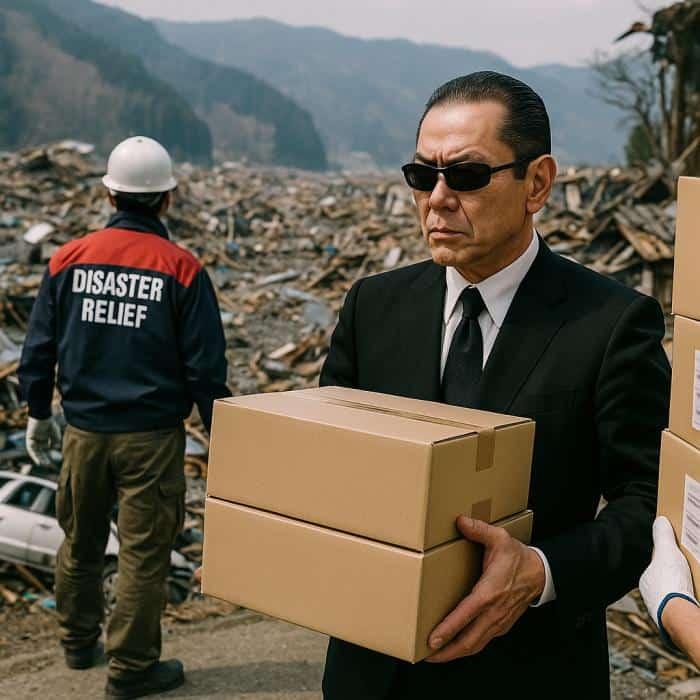1. Immediate Distribution of Supplies

In the immediate aftermath of the tsunami, swift action was critical. Surprisingly, it was the Yakuza who first reached many remote, disaster-stricken communities, bringing urgently needed food, clean water, blankets, and other essential supplies. Leveraging their extensive networks and logistical expertise, these groups bypassed bureaucratic red tape, often arriving ahead of official government assistance. Eyewitnesses reported seeing organized convoys of Yakuza members distributing aid directly to victims, providing rapid relief at a time when traditional authorities struggled to respond. This unexpected efficiency highlighted a rarely seen yet impactful capability of Japan’s infamous criminal organizations.

















